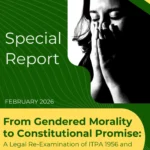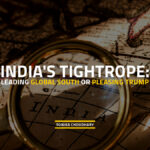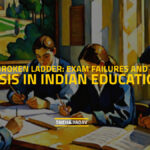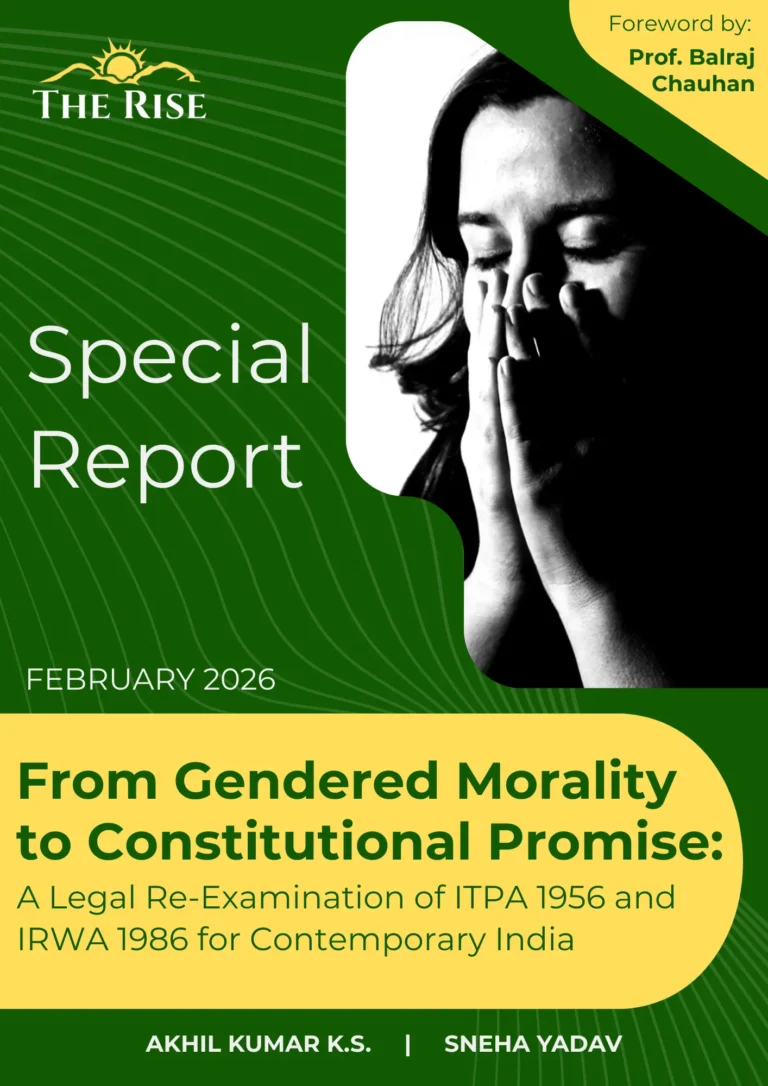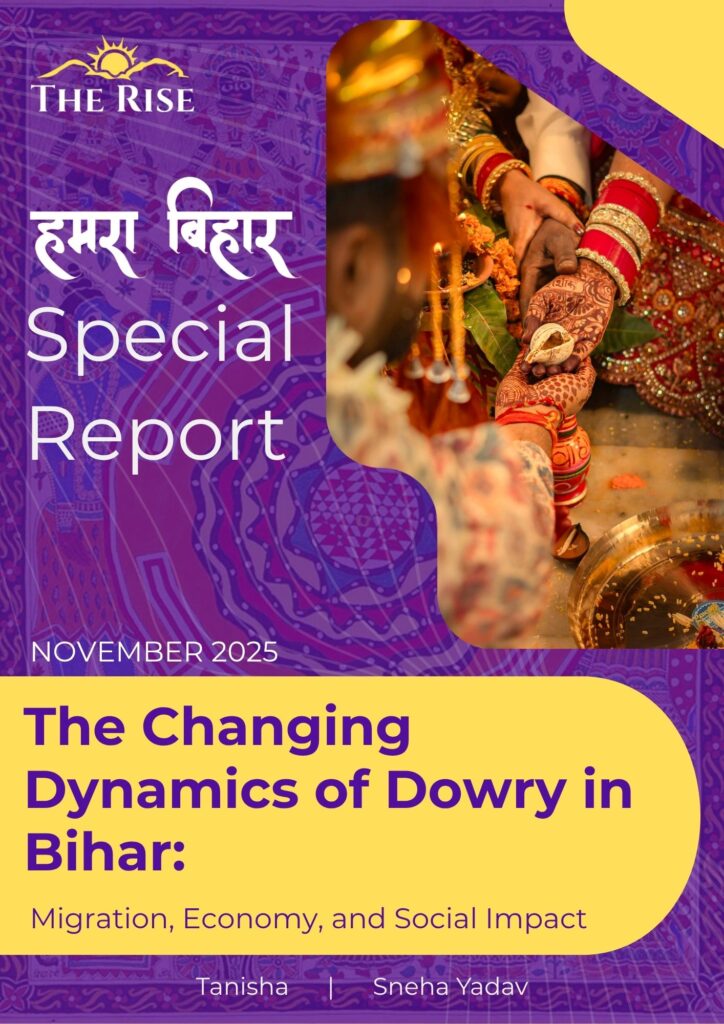
The dowry system in Bihar reflects a complex intersection of culture, economy, and gendered power relations. Once a customary practice known as stree dhān, meant to ensure a woman’s financial security, it has transformed into a deeply institutionalized form of coercion and economic exploitation. Despite legal prohibitions, the practice continues to thrive, adapting to changing social and economic contexts.
Bihar’s contemporary scenario illustrates the persistence of traditional patriarchy amid modernization. Data from the National Crime Records Bureau (2024) reveals Bihar as one of the leading states in dowry-related offences, with over 3,600 reported cases and more than 1,100 dowry deaths in 2023 alone. This alarming trend underscores how dowry has evolved into a symbol of social prestige and economic aspiration, sustaining gender inequality and financial pressure across caste and class lines.
The findings of this report reveal that dowry today operates as an economic institution. Education, caste rank, government employment, and migration, particularly to Gulf countries, determine a groom’s “market value”. Families of the bride frequently finance these payments through loans or the sale of land, creating long-term debt cycles that reinforce poverty and gendered dependence.
Caste still shapes dowry expectations, but rising incomes and migration are diluting these boundaries. Remittance-earning grooms from lower castes now command dowries comparable to those from upper castes, prompting families to prioritise income over caste purity.
Economic mobility is quietly reshaping Bihar’s marriage market, where dowry terms increasingly outweigh traditional hierarchies.
The form and composition of dowry have also modernized. Cash, gold, motorbikes, and cars have largely replaced traditional items like land or livestock, reflecting the rise of consumerism. In urban and semi-urban Bihar, a car or motorcycle is now considered essential to signify respectability and progress. This transition has effectively rebranded dowry as a symbol of “modern success” rather than an outdated custom, making resistance socially difficult.
Importantly, the report highlights how dowry sustains intergenerational control. In households with migrant sons, a significant portion of dowry inflows often remains with the groom’s parents, financing their consumption. Thus, migration not only increases dowry demands but also strengthens patriarchal authority through financial centralization within the older generation.
Policy analysis shows that while Bihar’s welfare schemes have improved awareness, they have not dismantled the underlying cultural acceptance of dowry. Legal enforcement remains weak, with conviction rates for dowry-related crimes below 35% (NCRB, 2023). Community mediation and social stigma continue to suppress women’s voices, reinforcing cycles of silence and impunity.
The study concludes that ending dowry requires more than legislation; it demands structural and attitudinal change. A holistic approach combining stronger law enforcement, women’s economic empowerment, gender education, and community engagement is essential. A dowry-free Bihar will emerge only when social values shift from wealth and prestige to dignity, equality, and mutual respect in marriage.
Get a hard copy delivered at your doorstep:
Terms & Conditions:
- Order cancellation procedure: Mail at support@therise.co.in requesting order cancellation with a valid reason within the first 24 hours of order placement. The payment receipt must be mandatorily attached, without which no order cancellation request will be entertained.
- Returns/Replacement: No return/replacement is possible
- Refunds: The complete amount is refundable if the order cancellation request is received at support@therise.co.in within the first 24 hours of the order placement. Refund will be issued in 5-7 working days.
About the author
Tanisha is a postgraduate in Political Science from the Central University of Punjab. Her academic interests span Public Policy, International Relations, and Subaltern Studies, with a focus on understanding marginalised voices and contemporary governance challenges. She is currently a TRIP Intern.
-
This author does not have any more posts.
Sneha Yadav is an electronics engineer with a postgraduate degree in political science. Her interests span contemporary social, economic, administrative, and political issues in India. She has worked with CSDS-Lokniti and has been previously associated with The Pioneer and ThePrint.
-
Sneha Yadav
-
Sneha Yadav
-
Sneha Yadav
-
Sneha Yadav
-
Sneha Yadav
-
Sneha Yadav
-
Sneha Yadav
-
Sneha Yadav
-
Sneha Yadav
-
Sneha Yadav
-
Sneha Yadav
-
Sneha Yadav
-
Sneha Yadav
-
Sneha Yadav
-
Sneha Yadav
-
Sneha Yadav
-
Sneha Yadav
-
Sneha Yadav
-
Sneha Yadav
-
Sneha Yadav
-
Sneha Yadav
-
Sneha Yadav
-
Sneha Yadav
-
Sneha Yadav
-
Sneha Yadav
-
Sneha Yadav
-
Sneha Yadav
-
Sneha Yadav
-
Sneha Yadav
-
Sneha Yadav




